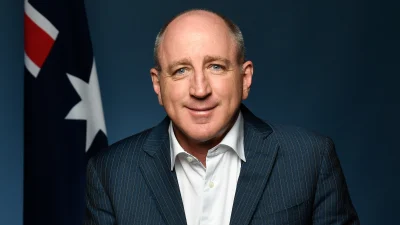ESG: what really drives company values
In recent years, so much that has been anticipated, researched, reported on and heralded by the ethical and responsible investment community has come to pass, both good and bad. These issues, which have historically been viewed as ‘in addition to’ the real world, have become the real world.
As we are all aware, climate change is one outstanding example but there are many others as well, such as our urgent need for more water, the global race for energy security, widespread human rights abuses in emerging nations, weaknesses in the financial system that led to the sub-prime collapse, soaring rates of obesity-related illness, escalating food security issues, and finally, the scarcity of all of our natural resources in the face of a ballooning population.
While these issues are often categorised as intangible and unable to be measured, the fact remains that they are having an increasingly significant affect on company value.
For example, a report released last year by Citigroup showed that at a cost of $20 per tonne for CO2 (now a very conservative estimate), OneSteel would sacrifice a full 18 per cent of its profits. In the US, a similar carbon analysis of two companies in the electricity sector showed that one company’s profits would fall by just 1 per cent with the introduction of a cost on carbon, while its direct competitor would sacrifice 19 per cent of its profits.
The reason? The less affected company has been building a strong renewables portfolio and has made great strides in energy efficiency and biofuels. On the other hand, the more affected company is almost completely reliant on coal, has a tiny renewables portfolio and lags on efficiencies.
Recent reports by AMP Capital Investors and Goldman Sachs tell us that anywhere between 77 per cent and 85 per cent of company value is tied up in environmental, social, governance and ethical issues that are largely invisible to the naked eye — and to the profit and loss sheet as well.
These days, the real things that drive company value are not how many factories, machines and trucks you own, but how well you treat your staff, your customers and your suppliers, the ethical standards of your board, how well you understand your exposure to environmental risks, and how you treat the workforce and build relationships in the communities in which you establish operations.
What’s in it for you?
In the year to May 2009, the number of investment organisations that signed up to the United Nations Principles for Responsible Investment (UNPRI) increased by 45 per cent to 525, representing assets under management of US$18 trillion.
And it’s not only among investment professionals that the demand for responsible investment is growing. Individual investors want it too.
A report by EuroSIF (the European Sustainable Investment Forum) in 2008 found that high-net-worth (HNW) individuals were increasingly seeking responsible investment choices.
The report highlighted that the demand for inclusion of ‘sustainability criteria’ in the management of their investments was growing as a result of “a generational shift in thinking about capital growth and preservation as well as the prospects for outperformance”.
And earlier this year, the fifth annual Wealth and Values Survey by the PNC Financial Services Group, found that the majority of wealthy Americans (who that have at least US$500,000 in investable assets) have ‘green’ values, reporting a keen interest in environmental issues and companies that follow a socially responsible path.
Investing directly into environmental technologies is also gaining pace among HNW and ultra-HNW clients. In Europe, 21 per cent of all ultra-HNW clients invest in what is now coined ‘cleantech’. In the HNW category, 17 per cent invest in cleantech, with studies predicting that this will rise to 25 per cent by 2012.
These trends will be supported in coming years as the current wave of significant green stimulus packages kick in. A recent report by HSBC says that of the $2,800 billion in global stimulus packages distributed in early 2009, $430 billion of this was directed toward the ‘green economy’, which includes green energy as well as green infrastructure.
If your business doesn’t have HNW individual clients, this is all still good news. Another one of the key findings of the EuroSIF report was that “the HNW individual sector has traditionally acted as an early indicator of trends in the broader investment market”.
But before you jump in
While every client you see may not use energy efficient light bulbs or capture their water in the shower or eat organic food or sort their recycling — there’s a good bet they do at least one of these. And in this time of market uncertainty and decreased investor confidence, I’d guarantee that if they had the choice between investing in a company with strong risk management around ethics, governance, environmental management and social responsibility and one that did not, they would go for the former.
But before you race out and start talking with your clients about responsible investment, listen to a word of warning offered in the EIRIS and Tru-Est Special Report in 2008 called “Wealth Managers and SRI”. This report found that the single largest factor impeding the growth of responsible investment was not lack of willingness from clients, but rather that advisers did not have the knowledge they need to be able to address these issues with confidence.
The report found that often advisers had educated themselves about responsible investment in reaction to client requests and that this had led to an ad hoc understanding about responsible investment products and the way in which environmental, social and governance issues affect portfolio value.
Understandably, this lack of knowledge has caused advisers in Europe to shy away from speaking with their clients about responsible investment. And that means advisers are missing out on a tremendous opportunity.
Responsible investment clients are known to be more ‘sticky’ than their mainstream counterparts, meaning that they will stick with their investments even when times get tough, because they have a long-term commitment to the strategy that reaches well beyond short-term financial returns. This provides advisers with a golden opportunity to better serve the client’s real needs, to engender trust and to promote loyalty and word of mouth recommendations.
There is no need for an adviser in Australia to find themselves in this situation, however.
Australia has developed one of the most robust, well-regulated environments for responsible investment in the world. We are fortunate to have over 100 different responsible investment products available from Australia’s leading financial institutions ranging from active and indexed funds and superannuation options to every day bank accounts.
We also have the world’s only online training course for advisers and certification program for responsible investment products and services.
So what are you waiting for?
Investing responsibly is no longer the domain of hippies and radicals. If fact, it may well be one of the most prudent and conservative investing styles that we’ve seen in decades — and one that your clients are increasingly going to ask for.
Louise O’Halloran is executive director of the Responsible Investment Association Australasia.
Recommended for you
A relevant provider has received a written direction from the Financial Services and Credit Panel after a superannuation rollover resulted in tax bill of over $200,000 for a client.
Estimates for the calendar year 2024 put the advice industry on track for a loss in adviser numbers as exits offset gains from new entrants.
Adviser Ratings shares five ways that financial advice changed in 2024 with an optimistic outlook for 2025, thanks to the Delivering Better Financial Outcomes legislation.
National advice firm Invest Blue has announced several acquisitions, including the purchase of an estate planning and wealth protection business Lambert Group.














